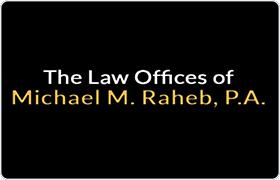Captiva Criminal Lawyer, Florida
Sponsored Law Firm
-
 x
x

Click For More Info:
-
Law Offices of Michael M. Raheb P.A.
2423 First St Fort Myers, FL 33901» view mapCriminal Defense Law Legal Problem? Call Us 24/7
At the Law Office of Michael M. Raheb, we strive to ensure each of our clients receives the individual attention and representation necessary to obtain an optimal outcome.
800-890-8981
Sean C. O'Halloran
✓ VERIFIEDI am a managing partner and trial attorney with the law firm of Aiken & O'Halloran. I have lived in Fort Myers since 1973. After graduating from Bisho... (more)
Michael M. Raheb
✓ VERIFIEDMichael Raheb has successfully handled hundreds of cases in the state and federal courts of Southern Florida, in both the criminal and civil arenas. H... (more)
Rita Noelle Charlet
FREE CONSULTATION
CONTACTFREE CONSULTATION
CONTACTFREE CONSULTATION
CONTACTPeter D. Aiken
FREE CONSULTATION
CONTACTFREE CONSULTATION
CONTACTFREE CONSULTATION
CONTACT Michael M. Raheb Fort Myers, FL
Michael M. Raheb Fort Myers, FL Practice AreasExpertise
Practice AreasExpertise


